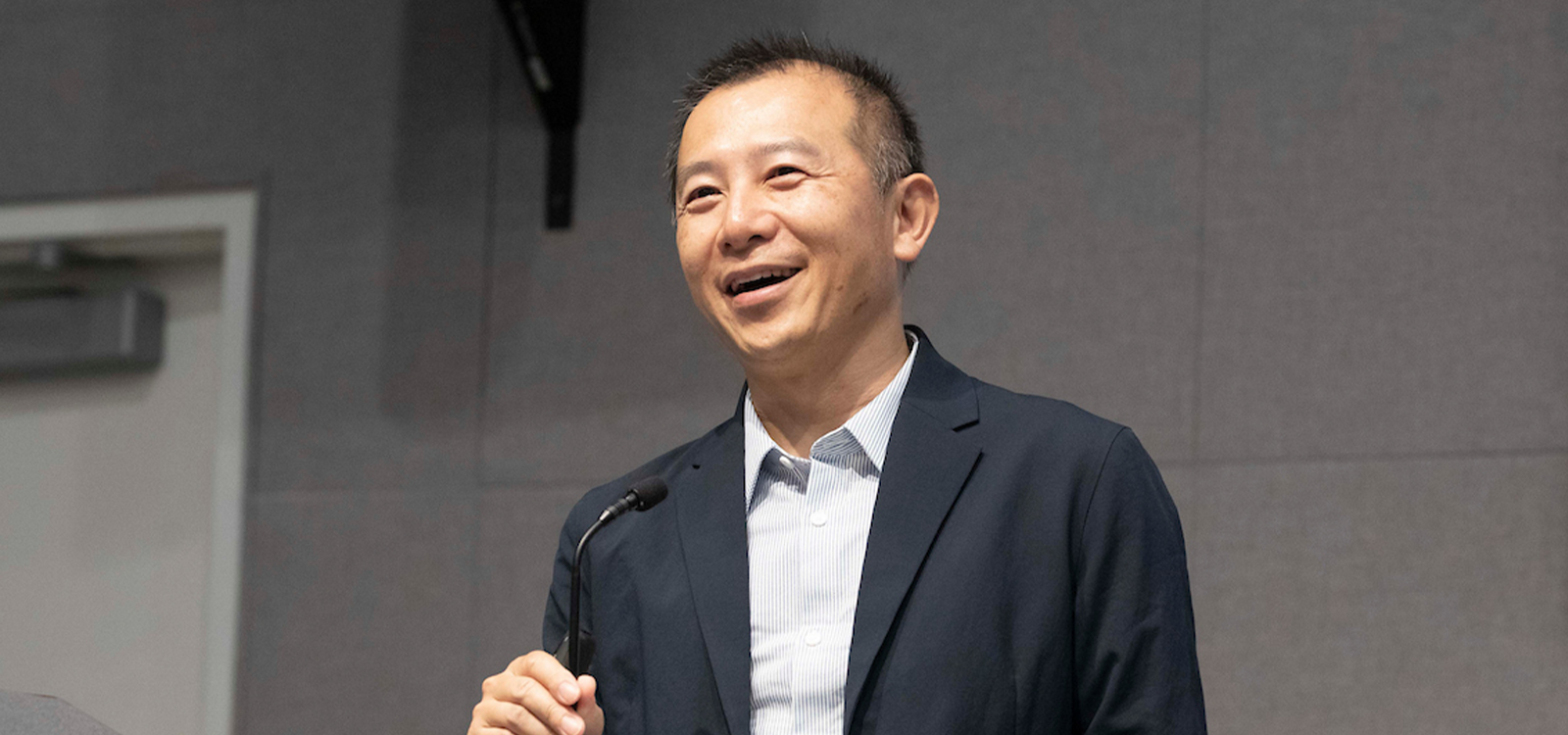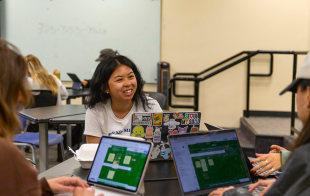Preparing for an AI World: Q&A with Leida Chen, Cal Poly's First AI Faculty Fellow

With artificial intelligence (AI) quickly reshaping the education and business landscapes, the Orfalea College of Business recently became the first college at Cal Poly to create a faculty fellow for AI.
The new role is designed to help the college explore and integrate artificial intelligence across teaching, research and practice. With recent donor support, more colleges will soon have AI fellows as well.
At Orfalea College, Leida Chen, a professor in the Management, Human Resources, and Information Systems Area, will provide leadership in advancing faculty development, supporting innovative curriculum design, and foster collaborations with industry and other university departments and colleges.
We asked Chen about AI and how his new role will help students and faculty prepare for the rapid developments, threats and opportunities AI presents.
Why do you think it’s helpful to have a fellow dedicated to AI?
I think it is critical to have a fellow dedicated to AI, especially at this early stage of the innovation adoption and diffusion. To guide my work in this role, I use a simple framework that moves through three layers: culture, skills, and integration.
I think the role should first focus on developing a culture of innovation and experimentation in the College and creating an infrastructure (e.g., workshops, industry speakers, resource hub) for learning the skills. That means building awareness, trust, and curiosity and creating a responsible mindset across the college and helping faculty gain comfort and competence with AI tools. Because our faculty are some of the most intelligent and dedicated educators and researchers, true integration of AI in their work will happen naturally once the culture and infrastructure are in place.
The role of AI faculty fellow provides the dedicated focus and time needed to build that foundation. It also allows me to represent Orfalea College in university-wide initiatives such as the Cal Poly AI Convening in November, the upcoming Cal Poly AI Spring Symposium, Association of American Colleges & Universities (AAC&U) AI Institute project, the newly established Academic Senate Committee on Generative AI. The role and collaboration across campus will ensure that our college continues to lead and contribute to Cal Poly's AI strategy.
What are your primary goals in this role?
My primary goals in this role are to 1) enhance AI literacy and competencies among Orfalea students and faculty, 2) support AI integration across the business curriculum, and 3) promote ethical and responsible use of AI in business education. These goals align with Cal Poly's Learn by Doing philosophy and ensure our students graduate not only as power users of AI but also as critical thinkers and innovators in an AI-driven world.
Do you think every one of our business majors and concentrations is impacted by AI? How are you working with faculty to incorporate AI into coursework?
I believe every one of our business majors and concentrations is impacted by AI. While the applications will be different, the underlying question remains the same, which is how we can leverage AI to make better decisions and improve human lives. In some areas, AI may take over repetitive or data-intensive tasks to free up time for human to focus more on humanistic activities, such as communication and relationship development. In other areas, AI may completely taking over the decision-making or creation processes so that human can focus on creative pursuits and develop more enticing products and services.
My current work focuses on infusing AI literacy across the business curriculum, which includes new course and course content proposals to build baseline AI literacy for business students, AI office hours to brainstorm ideas with faculty on discipline-specific AI content and activities to incorporate in individual courses, and leading the broader discussion on how AI can be best integrated to enhance the relevance and delivery of our courses.
This approach ensures every business student, regardless of their concentrations, graduates with the skills and understanding needed to thrive in their future careers.
Are industry partners assisting in this?
Yes, industry partnerships have been essential. Google has been an especially important partner in this effort. Dean Fleming has secured a gift from Google that gives us access to its professional certificate course content, including AI literacy courses. These courses will be integrated into Orfalea courses, including BUS 100 and 206, as well as a number of information systems concentration courses. They will help all business students develop foundational AI literacy.
We are also collaborating with MongoDB and Amazon AWS and hosting speakers from major tech firms and AI startups. These partnerships ensure that what we teach reflects the evolving needs of the workforce.
We will continue developing industry partnerships in the future, and the more we can learn or hear from the industry, the better informed we are about how we can align our curriculum to reflect the reality of business and technology today.
Just a short while ago, universities talked a lot about the negative side of AI. At the same time, universities want to keep up with evolving technologies. How do we maintain that balance?
With every technological innovation come unintended consequences. One of my research interests is the "dark side" of information technology, so I have been reflecting a lot about the ethical, societal, and environmental issues that accompany innovation. AI is no exception. We know AI is here to stay, so the key is not to fear or ban the technology, but to educate.
The question we should be asking ourselves is how we can prepare students to use AI ethically, critically, effectively, and at the same time, minimize the negative impact. This will involve helping students understand how these systems work, their limitations, and their impacts on people and society. Providing students with the ethical framing and opportunities for critical reflection are key to achieving the balance.
As we continue to learn, innovate, and remain aware of AI's risks and opportunities, we will intentionally incorporate these topics in discipline-specific context to help our students become responsible leaders who shape the future of business and technology in a positive way. As faculty, we also have a responsibility to model the ethical and effective use of AI through our own work such course design, research, and communication to demonstrate to our students what responsible innovation adoption looks like.
Top photo: Leida Chen speaks during the Cal Poly AI Convening in November. (Photo: Andy Sherar)
Your support helps faculty provide students with the latest tools needed to succeed in a quickly evolving workforce.

